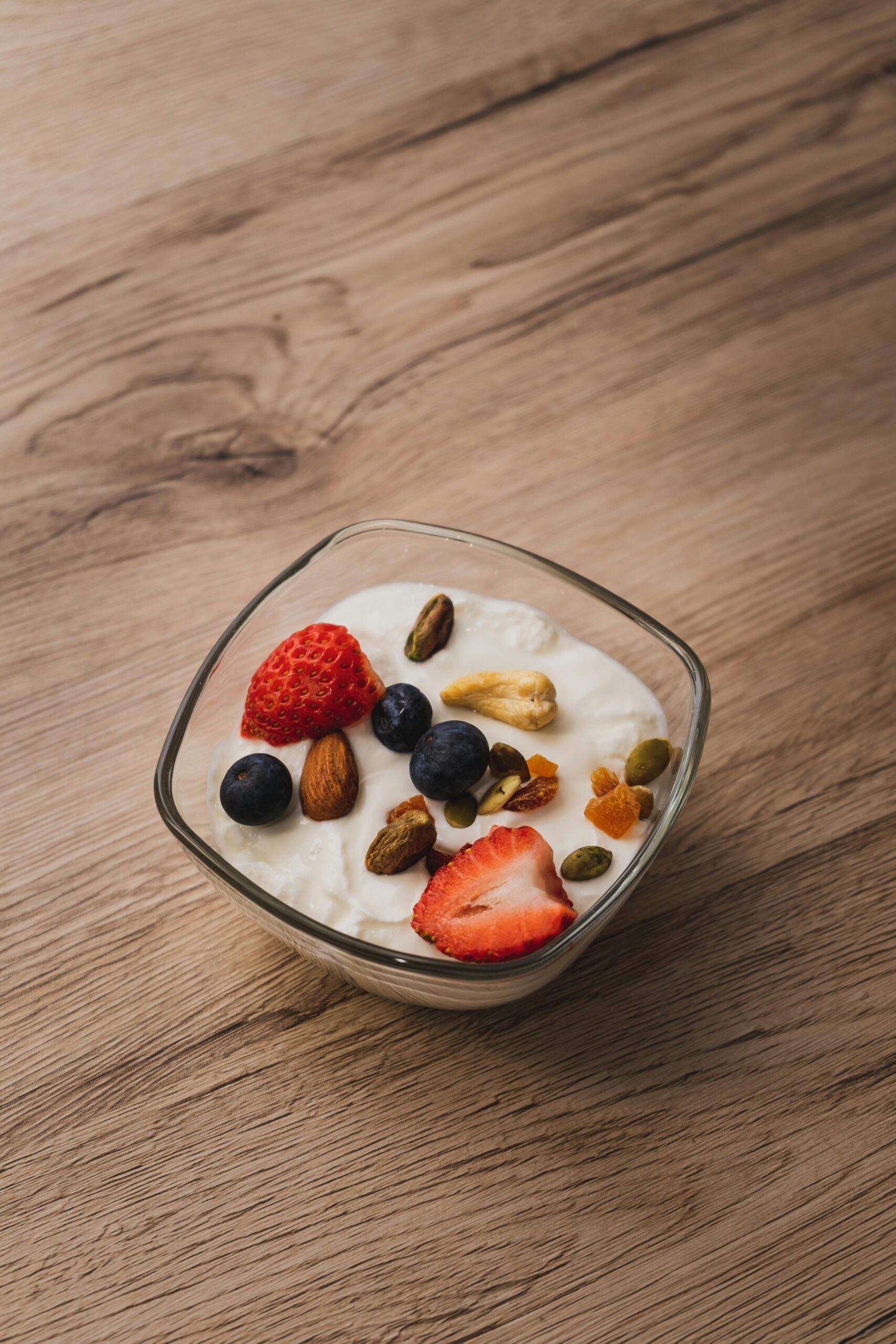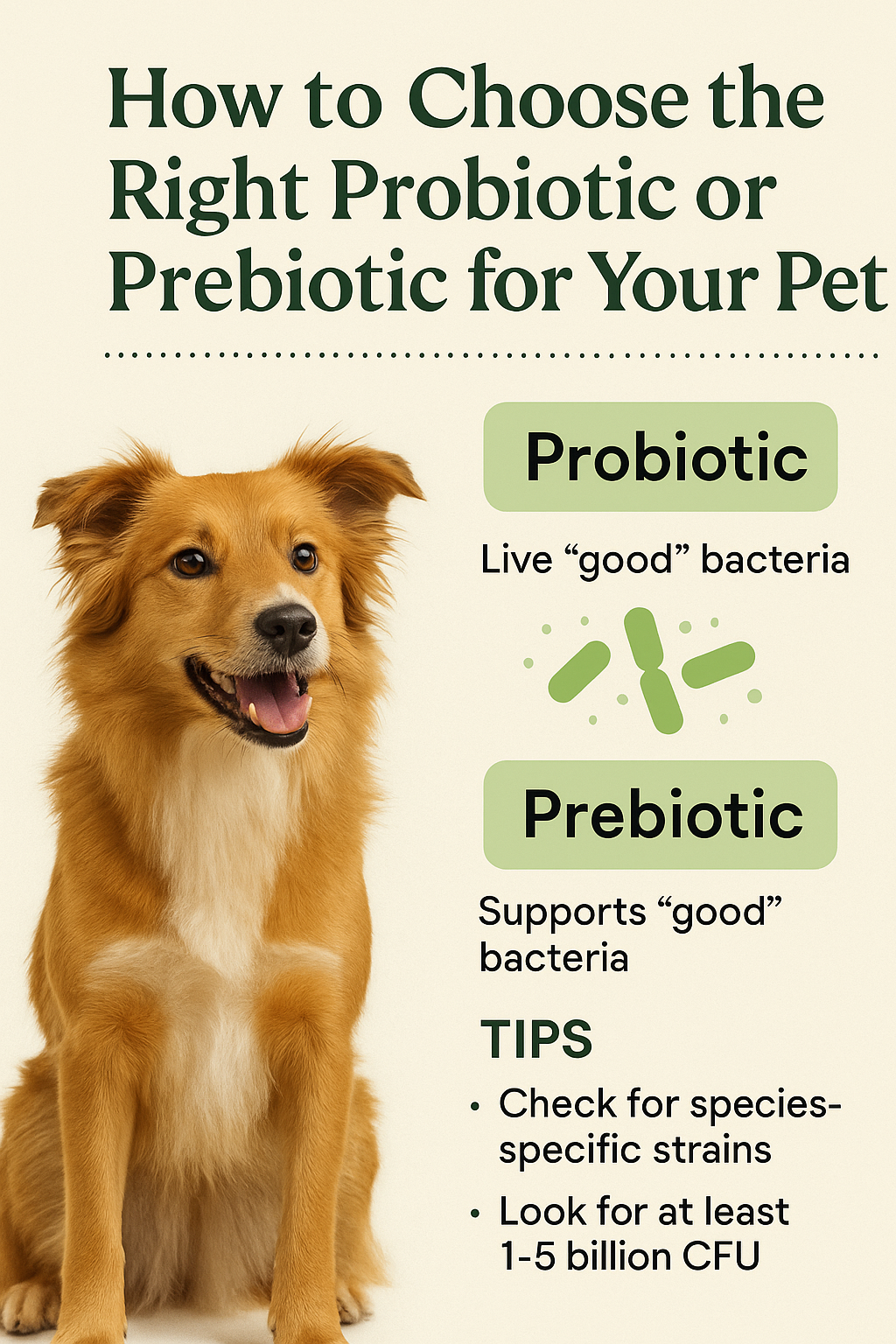
Does your dog keep scratching despite flea treatments, baths, and even prescription meds? Or maybe your cat has recurring ear infections or flaky skin that just won’t go away. If food allergies aren’t the full answer, the problem could be deeper — in your pet’s gut health.
Recent veterinary research shows that the gut microbiome — the community of bacteria and microbes in the intestines — plays a big role in skin health and immune balance. That’s where probiotics come in.
🦠 The Gut–Skin Connection
Your pet’s gut and skin might seem like distant systems, but they’re closely linked through the immune system:
- 70% of immune cells live in the gut.
- An imbalanced microbiome (called dysbiosis) can make the immune system overreact.
- This overreaction often shows up as itchy skin, hot spots, or chronic infections.
By restoring healthy gut bacteria, probiotics may reduce unnecessary immune triggers that cause skin flare-ups.
🐾 Signs Your Pet’s Skin Issues Could Be Linked to Gut Health
- Chronic itching that doesn’t improve with flea treatments
- Recurrent ear or skin infections
- Red or inflamed skin, especially on paws and belly
- Digestive upset (gas, diarrhea, or vomiting) alongside skin problems
If you’re checking multiple boxes, probiotics may be worth exploring.
🌿 What Are Probiotics, Exactly?
Probiotics are live, beneficial microorganisms (usually bacteria or yeast) that help balance your pet’s intestinal microbiome. Think of them as “good bugs” that compete with harmful bacteria, aid digestion, and calm immune responses.
Common probiotic strains for pets include:
- Lactobacillus acidophilus
- Bifidobacterium animalis
- Enterococcus faecium
- Saccharomyces boulardii (a beneficial yeast)
🧪 How Probiotics Can Help With Skin Issues
- Reduce Inflammation – Probiotics produce short-chain fatty acids that calm inflammatory responses linked to itching.
- Support Skin Barrier Function – By balancing the gut, they can reduce “leaky gut,” which may contribute to skin flare-ups.
- Enhance Nutrient Absorption – Better digestion means more bioavailable omega-3s, zinc, and vitamins critical for skin health.
- Limit Yeast Overgrowth – Some probiotics naturally crowd out yeast that causes ear infections and paw licking.
🍽️ Ways to Add Probiotics to Your Pet’s Diet
- Probiotic powders or capsules formulated specifically for dogs and cats
- Probiotic-rich foods like plain kefir or unsweetened yogurt (if tolerated)
- Prescription diets that include probiotic strains (ask your vet)
- Functional treats with added probiotics
⚠️ Important: Human probiotics don’t always work in pets. Use products tested for companion animals whenever possible.
🚩 What to Watch Out For
- Start slowly: Too much at once can cause temporary gas or loose stools.
- Check strain and CFU count: Look for at least 1–5 billion CFUs per serving, with clearly listed strains.
- Consistency matters: Probiotics need daily use to be effective.
✅ When to See a Veterinarian
Probiotics are helpful but not a cure-all. Always see your vet if:
- Itching is severe or worsening
- Your pet develops open sores or hair loss
- Ear infections keep recurring despite diet changes
- Skin problems don’t improve after 8–12 weeks of dietary adjustment
🐕 Final Thoughts
Probiotics aren’t just about digestion — they’re a valuable tool in supporting skin health and calming allergy-like symptoms. For pets with itchy skin, paw licking, or recurring infections, they can be part of a holistic plan alongside diet changes, omega-3 supplementation, and veterinary care.
In our next article, we’ll dive deeper into the pet microbiome itself — what it is, how it works, and why it’s the foundation of long-term health.
